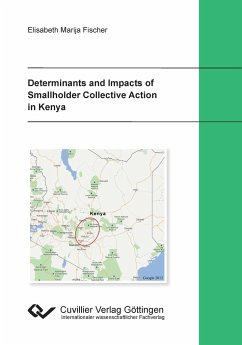Smallholders face numerous constraints that keep them from taking advantage of market opportunities. Because they often live in poverty and remoteness, on less than a hectare of land with poor road and market infrastructure, they face high costs of market exchange. In order for smallholders to compete with large-scale farms and benefit from the observed and ongoing transformation of the agri-food sector, institutional solutions are necessary that address the small scale problem. One potential option is through farmer collective action. However, the existing literature has not yet sufficiently identified the explicit mechanisms and dynamics by which collective action generates benefits for men and women. In three related articles, this research investigates how farmer groups facilitate access to input and output markets by reducing transaction costs, thereby promoting intensification and commercialization of small farms. It addresses the existing research gap by analyzing determinants, participation dynamics and impacts of farmer groups, using the case of small-scale banana producers in Kenya.
Hinweis: Dieser Artikel kann nur an eine deutsche Lieferadresse ausgeliefert werden.
Hinweis: Dieser Artikel kann nur an eine deutsche Lieferadresse ausgeliefert werden.








